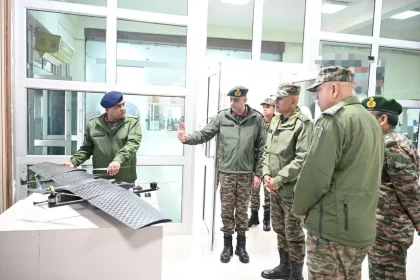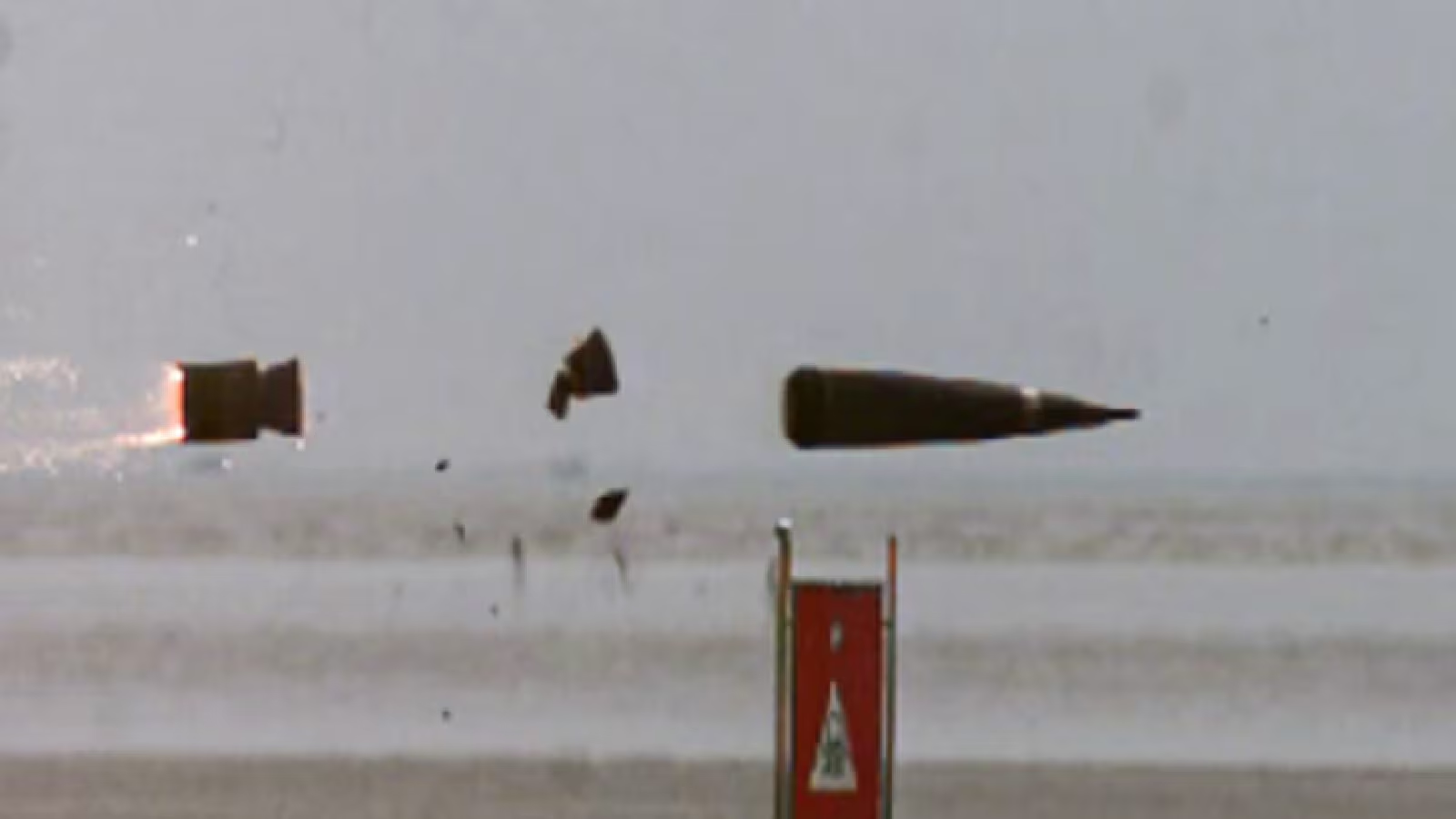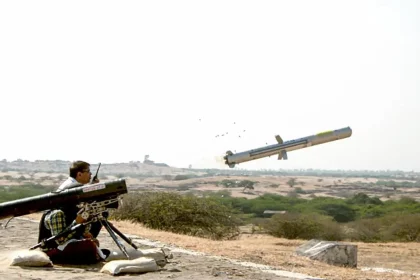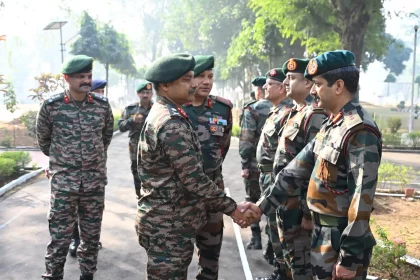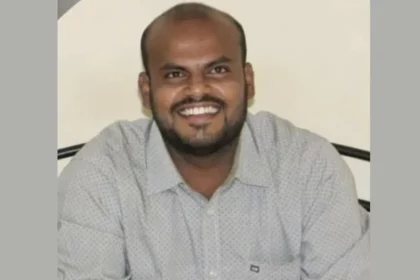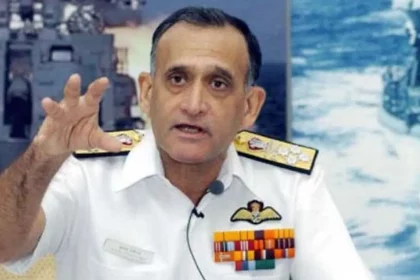Lt Gen Pratik Sharma Reviews Drone Fabrication and Maintenance Facilities, Emphasises Future Warfare Readiness
Northern Command Army Commander lauds innovation and technical expertise strengthening drone readiness for future conflicts.
IIT Madras Develops Ramjet-Assisted Artillery Shells, Boosts Gun Range by Nearly 50%
Ramjet-assisted 155 mm shells promise longer reach, greater survivability, and cost-effective firepower for India’s artillery forces.
DRDO Successfully Flight-Tests Indigenous MPATGM With Top-Attack Capability Against Moving Target
Successful MPATGM test strengthens India’s indigenous anti-armour capability and brings the system closer to Army induction.
GOC Red Shield Division Pays Tribute to 1971 War Heroes at Albert Ekka War Memorial, Agartala
Senior Army leadership honours the courage and sacrifice of 1971 war heroes, reaffirming the legacy and traditions of the Indian…
Civilian Employee Found Dead at NDA Khadakwasla; Police Investigation Underway
Authorities recover a note citing financial stress; Uttamnagar Police conduct probe as NDA expresses condolences and assures support to the…
Former Navy Chief Admiral Arun Prakash Asked to Verify Identity Under SIR Process, Veterans Raise Concerns Over Electoral Procedures
Notice issued during Goa’s Special Intensive Revision of electoral rolls sparks debate on verification norms, veteran dignity, and the need…

